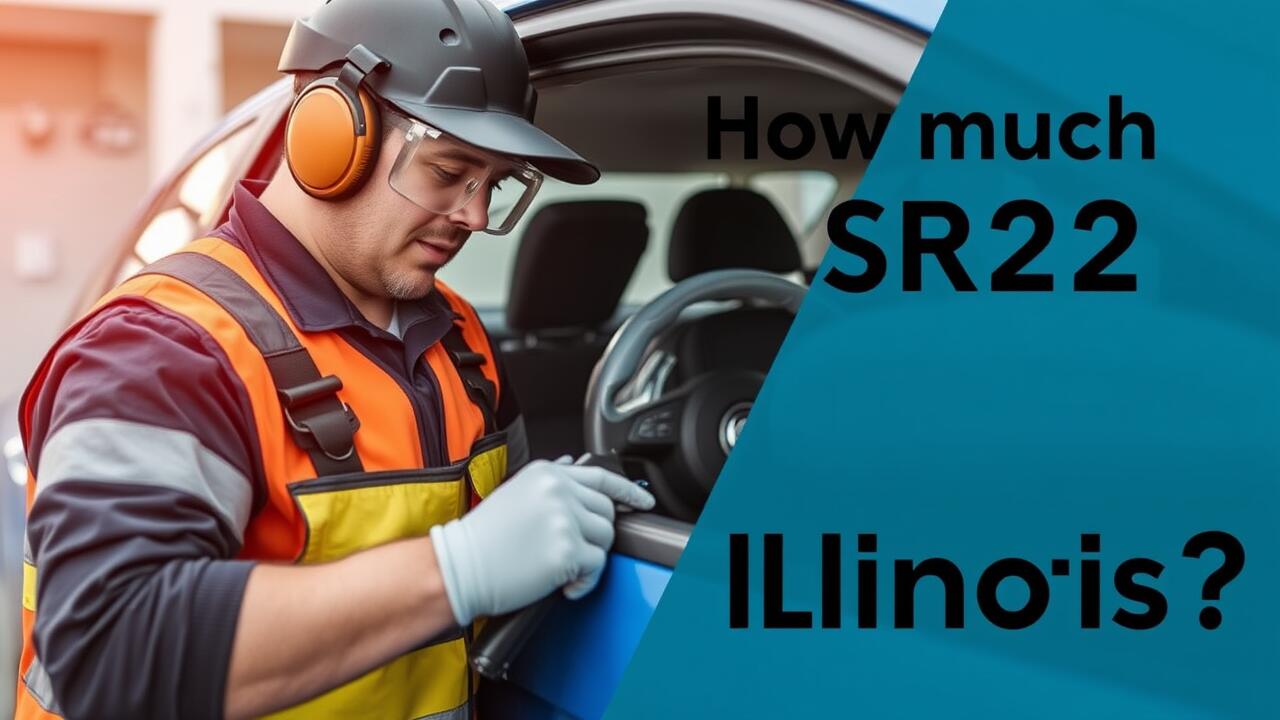How much does SR22 insurance cost in Illinois?

Table Of Contents
Duration of SR22 Requirement
The duration of an SR22 requirement can vary based on the nature of the violation that necessitated the filing. For most offenses, individuals are typically required to maintain SR22 insurance for a minimum of three years. However, this timeframe may be longer for more severe violations, such as DUI charges, which can extend the requirement to five years or more. Each case is unique, and it is essential for drivers to understand the specific duration applicable to their situation.
Failure to maintain SR22 insurance for the designated period can result in significant repercussions. The state of Illinois may consider the lapse in coverage as a violation, leading to further penalties. Individuals may face fines or an extension of the SR22 requirement, emphasizing the importance of continuous compliance with state regulations. Staying informed about the duration and the requirements can help ensure that drivers remain on the right side of the law.
Typical Timeframes for SR22 Filing
The timeframe for SR22 filing can vary depending on the specific circumstances surrounding a driver's violation or infraction. Generally, insurance companies can file the SR22 form electronically in a matter of minutes upon request. Once filed, the state processes it, which typically takes an additional one to two business days to update the driver's record.
Once the SR22 is in place, it remains active for the mandated duration set by the state. For many drivers in Illinois, this requirement lasts for three years following the violation. During this period, maintaining continuous coverage is crucial to avoid penalties or lapses that could extend the timeline.
Penalties for Non-Compliance with SR22
Failing to maintain your SR22 insurance can lead to significant consequences. If your insurance lapses or is canceled, the state will be notified, triggering penalties. This often results in the suspension of your driving privileges, which may require additional fees and longer periods without driving.
Moreover, reinstatement after a lapse can complicate future insurance coverage. Insurers tend to view gaps in coverage unfavorably, potentially leading to higher premiums or difficulty in obtaining a new policy. Understanding these repercussions can be crucial for anyone navigating the SR22 process.
Consequences of Letting SR22 Insurance Lapse
Failing to maintain continuous SR22 insurance can lead to serious repercussions for drivers. First and foremost, the state of Illinois will be notified of any lapse in coverage. This notification can trigger immediate penalties, including the suspension of driving privileges and additional financial liabilities.
Moreover, letting SR22 insurance lapse may complicate future insurance endeavors. Prospective insurers often view a lapse as a significant red flag, resulting in higher premiums or even difficulty in securing coverage. The consequences extend beyond immediate fines, impacting not only a driver’s current status but also their long-term insurance options.
Alternatives to SR22 Insurance
For drivers seeking alternatives to SR22 insurance in Illinois, one option is obtaining a non-owner SR22 policy. This type of coverage is designed for individuals who do not own a vehicle but still require proof of financial responsibility due to previous driving infractions. Non-owner policies typically provide liability coverage and can help fulfill the state’s requirements without needing a personal vehicle. This could be an economical choice for those who drive rental cars or borrow vehicles occasionally.
Another alternative is exploring high-risk auto insurance providers. These insurers specialize in covering individuals with poor driving records or those classified as high-risk due to prior offenses. While premiums may be higher than standard policies, these options can offer necessary coverage without the explicit need for an SR22 filing. Shopping around and comparing quotes from various providers can help in securing a more affordable rate, while still ensuring compliance with state requirements.
Exploring Non-Owner and High-Risk Options
For individuals who do not own a vehicle but still need to meet SR22 requirements, non-owner car insurance can be a practical solution. This type of coverage provides the necessary liability protection when driving cars that do not belong to the insured. It ensures compliance with the SR22 mandate while allowing drivers the flexibility to operate different vehicles without the financial burden of owning a car.
High-risk drivers may face challenges finding standard insurance policies due to their previous driving records. Specialized insurance companies cater to this demographic, offering tailored plans that comply with SR22 requirements. These high-risk policies often have higher premiums compared to typical coverage but provide essential legal protections for those who need to maintain driving privileges.
FAQS
What is SR22 insurance?
SR22 insurance is not a type of insurance itself, but rather a certificate that proves you have the required liability coverage mandated by the state for high-risk drivers.
How much does SR22 insurance cost in Illinois?
The cost of SR22 insurance in Illinois varies based on several factors, including the driver's history, the type of vehicle, and the insurance provider. On average, drivers might see an increase in their premiums of around 20% to 50% compared to standard rates.
How long do I need to maintain SR22 insurance in Illinois?
In Illinois, the SR22 requirement typically lasts for three years, but this period can vary based on the circumstances surrounding your driving violations.
What happens if I let my SR22 insurance lapse?
Letting your SR22 insurance lapse can lead to severe penalties, including the suspension of your driving privileges and potential fines. It is crucial to maintain continuous coverage during the required period.
Are there alternatives to SR22 insurance in Illinois?
Yes, there are alternatives such as non-owner SR22 insurance for those who do not own a vehicle but still need to file an SR22. Additionally, drivers may explore high-risk insurance options that could fulfill the state’s requirements.